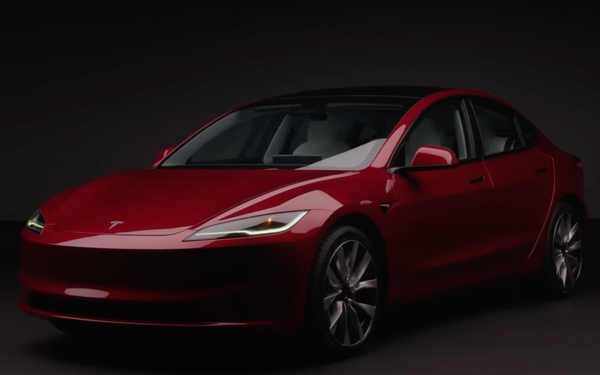From EVs To Elections, Marketers Misread Consumer Mindsets
- by Sarah Mahoney @mahoney_sarah, January 24, 2024

Marketers are experts in consumer psychology. They know which target audiences have a growth mindset and what types of people are most likely to challenge or agree with advertising claims. Yet Angela Y. Lee, a marketing professor at Northwestern University’s Kellogg School of Management, says marketers often miss the mark on a fundamental difference: a promotion mindset versus a prevention one.
Marketing Daily: What is a promotion mindset? And how does it differ from a prevention mindset?
Angela Lee: When we have a goal that involves growth and nurturance, that motivation is a promotion mindset. It’s about acquiring something good. These people are sensitive to positive outcomes and want good things in life. To them, the absence of those good things is a bad outcome. Most of the time, they're asking, 'How do I accomplish my goals and satisfy my ideals, hopes, and aspirations?’
advertisement
advertisement
Prevention is about safety and security and not losing what we have. So we all need food to grow, which is promotional, and a roof over our heads, which is prevention-focused. Everyone, including marketers, knows that. There are two sides to every coin. While people can have both mindsets, they tend to be one personality type or another, affecting how they respond to marketing.
These mindsets affect our attention and behavior.
Marketing Daily: You’ve often used electric vehicles as an example. Some people want them because they seem new and innovative and confer a kind of status. Others just fear gas prices.
Lee: Think about a beautiful red Tesla. We don’t know which type of mindset will find it appealing. A promotion-minded consumer might be more interested in acceleration or the infotainment center. A prevention mindset might like the car because they want lower maintenance and don’t have to buy gas. Or they may like multiple cameras that let them see hazards around them.
The two approaches extend to sustainability, too. Some people are motivated to buy EVs by thinking about a beautiful green planet. And some say, 'I don’t want to see a parched earth.’” Most marketers aren’t aware of how these two systems play out in their audience.
Marketing Daily: You test these by asking people to respond to taglines. How does that work?
Lee: Here’s an intuitive example and one that isn’t. Let’s say I have a tagline that says, “Get energized!” and one that says, “Don’t miss out on getting energized.” Everybody would predict, and our research found, that the "gain" framework, “Get energized!” would be more appealing. Conversely, when we tested “Prevent clogged arteries” and “Don't miss out on preventing clogged arteries,” the reverse happened, and the one written from the "loss" framework of “don’t miss out” did better.
From a linguistic perspective, the tagline framed in loss seems so clumsy. It's a mouthful and almost a double negative. It shouldn’t work better, yet it made people like the brand more.

Marketing Daily: I live in New England and have been suffering through endless Donald Trump and Nikki Haley ads targeting New Hampshire voters. Trump ran ads attacking Haley, saying she would take Social Security away from voters, clearly targeting that prevention mindset. Haley ran ads promising a new way of governing. Does that dichotomy work in politics?
Lee: Politics are interesting. We have found that as people get closer to elections and the day of voting, they become more prevention-focused, so that makes sense for primaries. Scaring people is very effective. But looking at November, which people see as far in the future, they are much more promotion-oriented.
Marketing Daily: So all of us can be promotion-oriented and prevention-motivated?
Lee: Yes. But these are personality traits, too. I’ll often ask people, "What bothers you more? Feeling sad or feeling anxious?" If their anxiety is more bothersome than sadness, they are prevention-oriented.
Situations change, too. I give a pre-class survey, and before the pandemic, students would typically say feeling sad bothers them more. But during the pandemic, more said they felt anxious.
Marketing Daily: Do these mindsets shift with age? I never worried about skin cancer in my 20s.
Lee: Yes. As people age, the time horizon for life is very different. They no longer want to think, 'Oh, this is going to be so exciting.’ They prefer feeling peaceful. Peaceful is a prevention emotion. Excitement is a promotion emotion.


